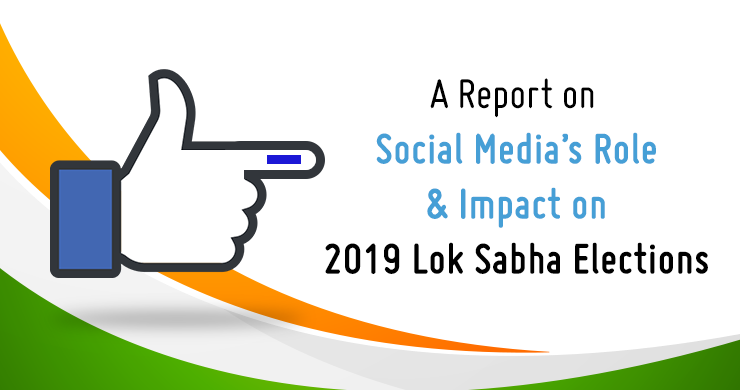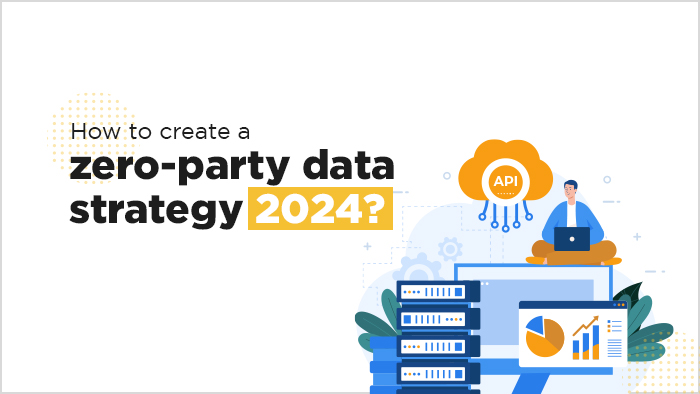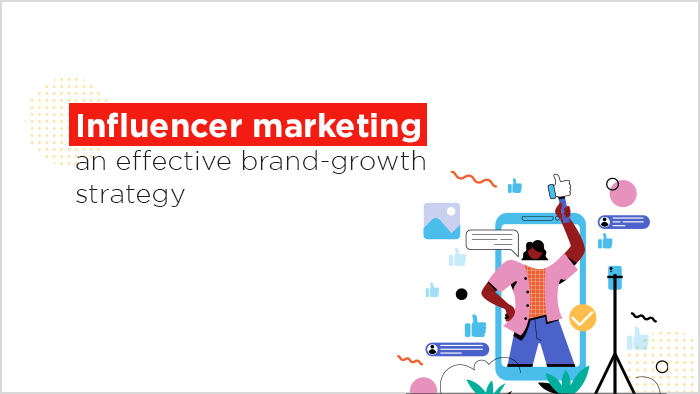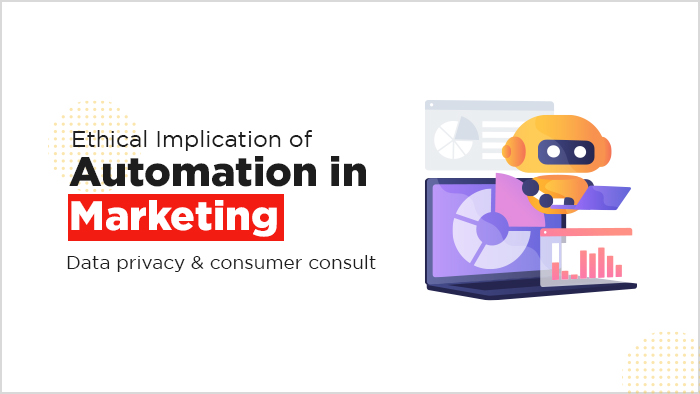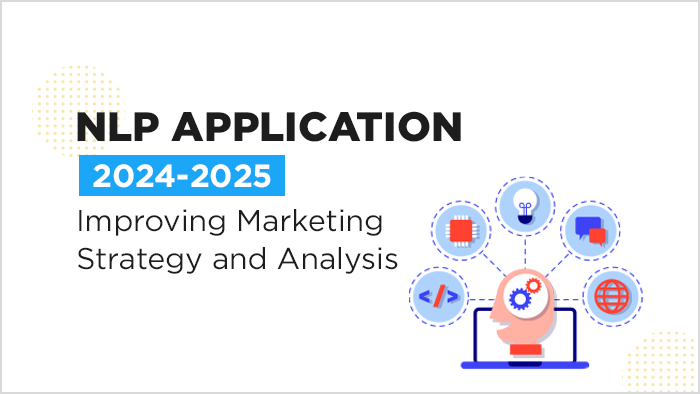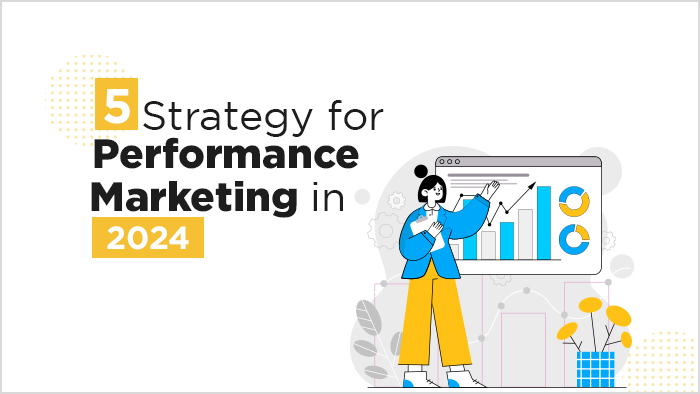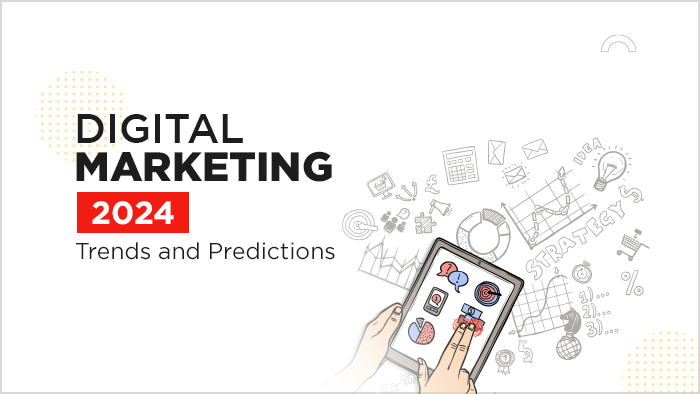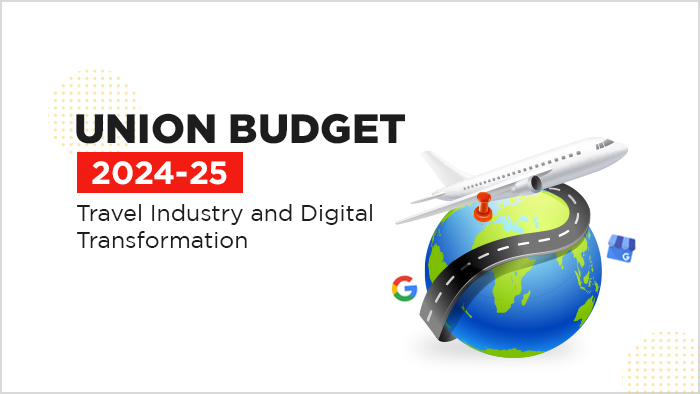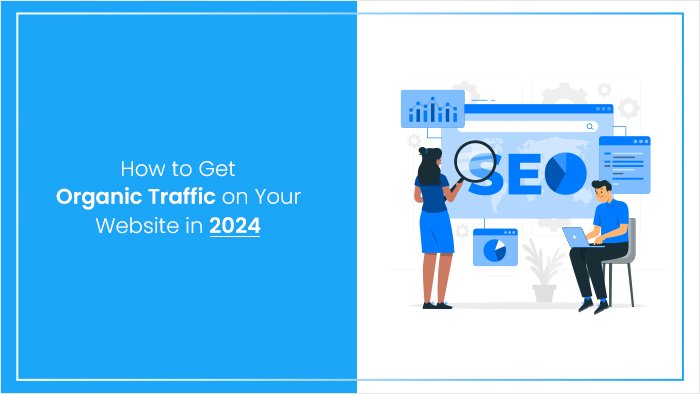“The youth of India do not watch the television anymore. They see videos on YouTube. They go to social media to get their information.”, TV Mohandas Pai, the IT industry veteran told the India Today in an interview just a day after the announcement of the 2019 Lok Sabha Elections on March 11 earlier this year. If the effect of social media was pronounced in the 2014 Elections, the impact has only grown since then and with almost 40% of the 900 million eligible voters being the young first-timer crowd, social media is all set to play a crucial role yet again.
Contents
India’s Internet Scenario
As of January 2018, Statista reported that India had around 462 million active internet users at any given time. Of these, 250 million were present via social media only. The site also stated that over the last half-decade, the number of internet users has only grown in the country, both urban and rural, and predicted that the user base will cross the 600 million mark by the end of 2019.
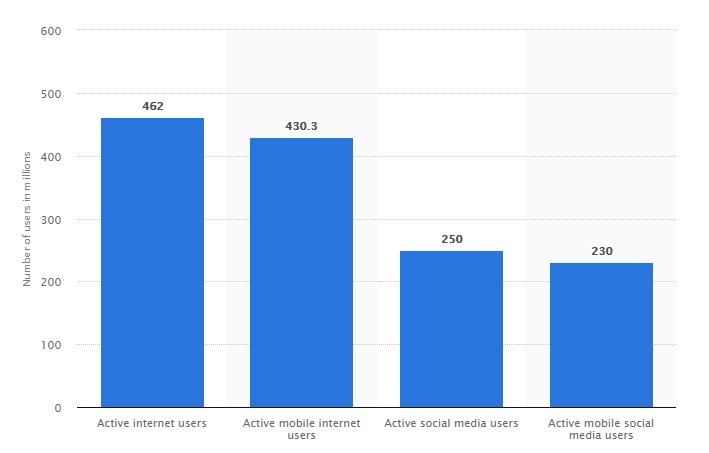
Right before the 2019 Lok Sabha elections ensued, the social media picture in India looked somewhat like this, according to The Companion:
- WhatsApp had 37.9 crores users who were above 18 years and eligible to vote
- For Facebook, the number was 24.1 crores or one in every four voters
- Twitter had a humble 4.3 crores
- The internet overall had 40.7 crores users, almost half the total number who can vote
And how did these numbers create the perfect canvas for the political parties? How much traction did social media receive in the time leading up to the polls? Let’s take Twitter’s example and paint the first picture of social media’s impact on the 2019 Lok Sabha Polls.
The Buzz on Twitter
The microblogging social media platform lit up instantly when India’s Election Commission announced the dates of the polls of the world’s largest democracy. In between March 11, 2019, the day of the announcement to April 11, 2019, when India voted in its first phase, Twitter received a staggering 45.6 million tweets surrounding the 2019 Lok Sabha Elections.
The conversation stories and the hashtags that trended also circled the upcoming polls.
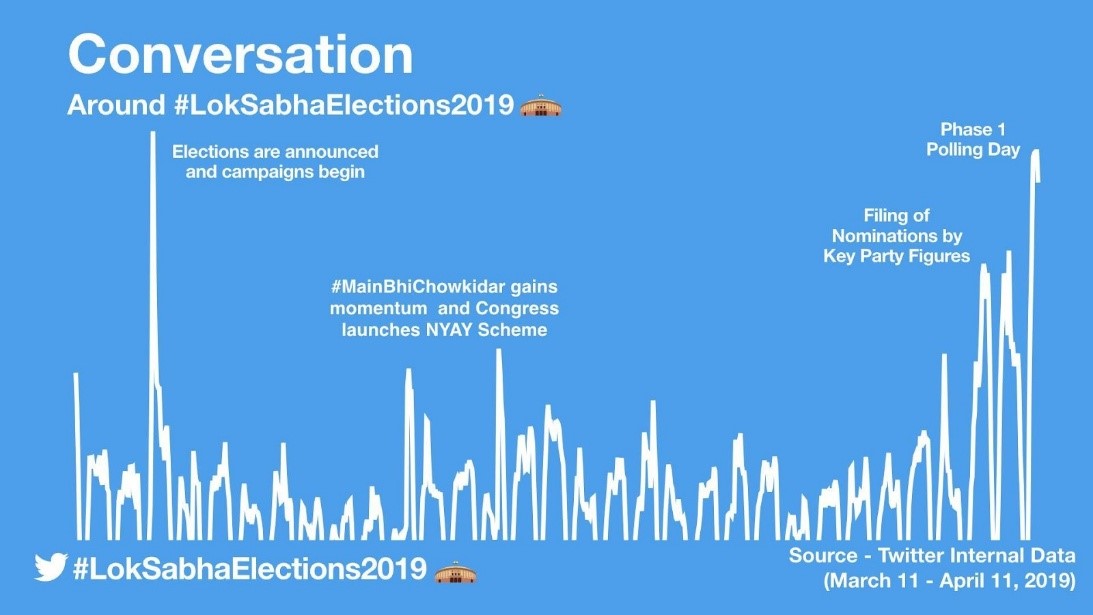
The top mentioned leaders on Twitter leading up to the elections.
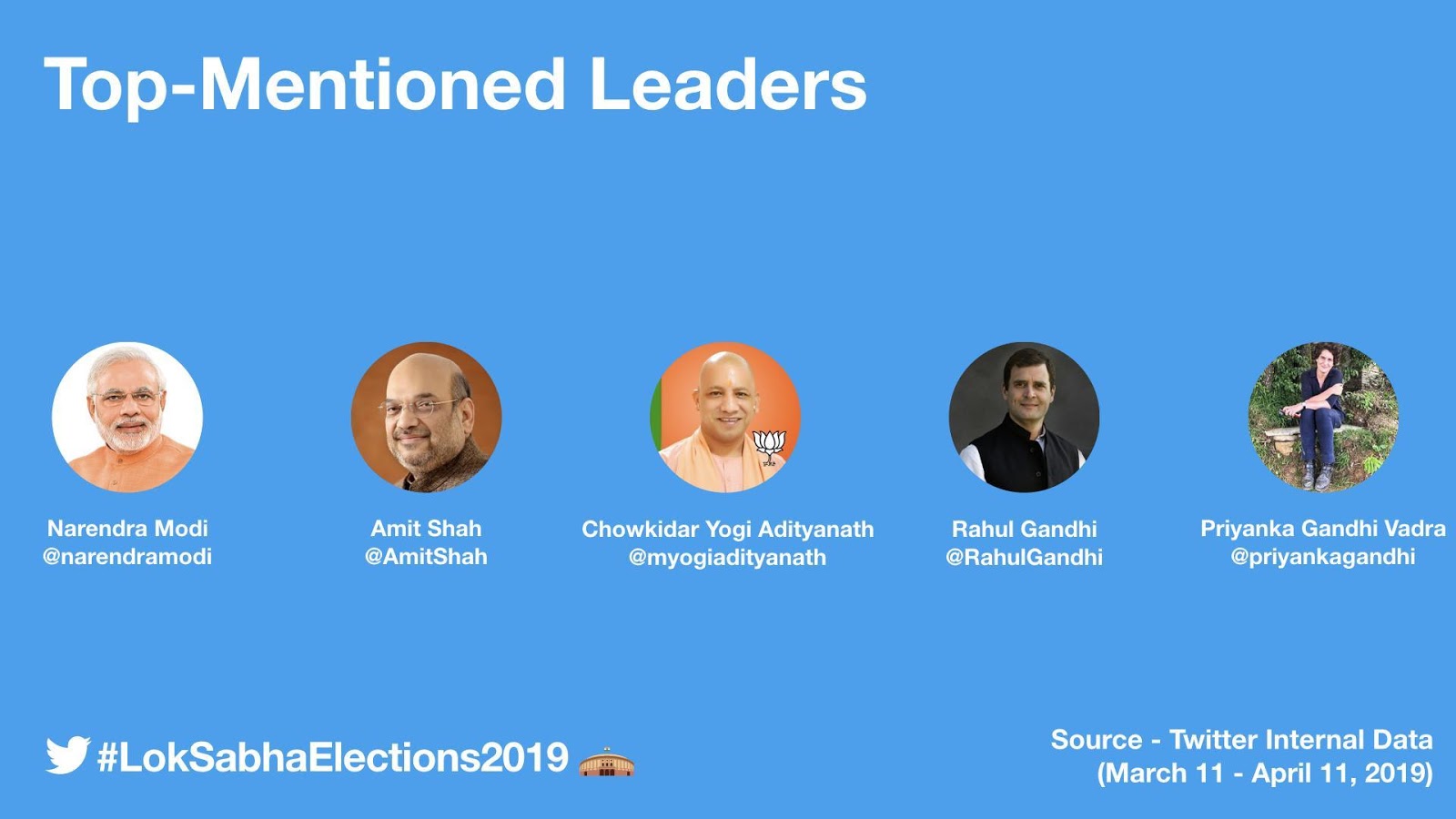
And the major topics discussed by people in relation to the 2019 Lok Sabha Polls.
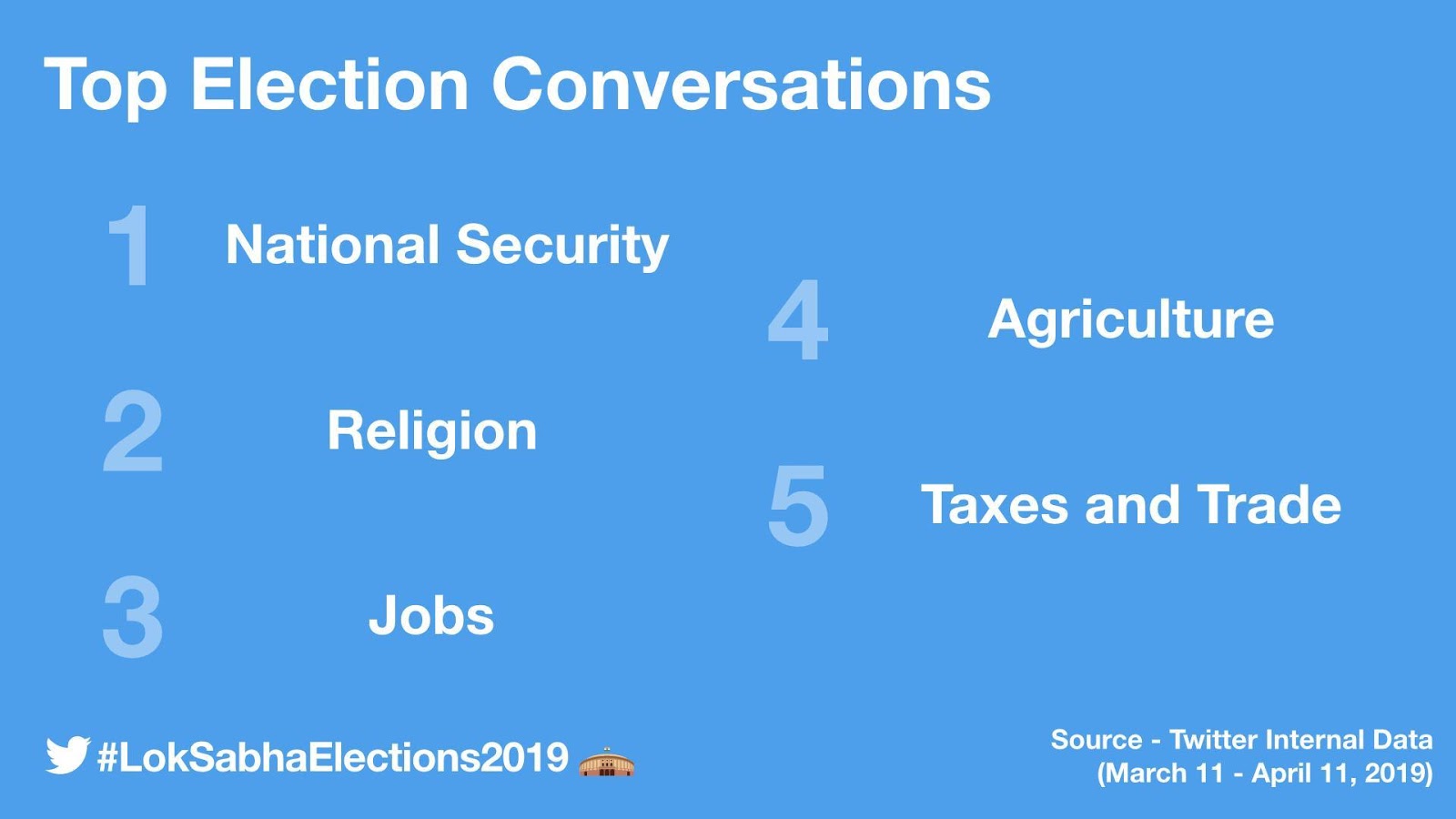
Now, if a platform of around 4.3 crore user base saw this much engagement, the extent of discussions on WhatsApp and Facebook is truly unfathomable. In the words of R. Chandrasekhar, the former Telecom Secretary and former President of NASSCOM, “It is indeed difficult to place an exact percentage about the influence of social media on the Lok Sabha Elections, but there is hardly any doubt that the figure will be significant.”
2014 was proof of social media’s impact on general elections. Political parties acknowledged that for 2019. Campaigning quickly moved to the digital front and all platforms felt the election’s heat.
Social media history in India’s Lok Sabha elections
Let’s turn the pages of India’s election history on grounds of social media. During the 2009 elections, Facebook was still new, WhatsApp was not there. Internet was still gaining popularity. Fast forward to 2014 when Essel Group’s India reported that the Facebook profile of Narendra Modi had a massive 14 million followers. The BJP front campaigned heavily on social media, Modi became a popular face on the internet and went on to win the 2014 elections which many field experts called a “sweep”.
Following that, the Prime Minister set up an active website, all his cabinet members created and maintained Twitter handles and engagement soared all around over the internet. The government’s initiative like Digital India and the availability of fast and cheap internet by telecom giant Reliance Jio further boosted the cause and smartphone sales shot up like a rocket on fire.
By 2017, Narendra Modi’s Facebook followers increased to 41.7 million and he became the most followed leader in the world. This served as a wake-up signal to other political parties – for 2019, social media will definitely play a vital role. By the end of 2018, everyone was there on social media. The oppositions started playing the catch-up role.
In 2019, hashtags were thrown at each other. Memes ruled heavily on every platform. Twitter handles got changed and people aligned over the internet. Right from the experts to the political parties, everyone started discussing the sentiment on social media and how the campaign in the popular platforms will ultimately impact the poll results.
Social Media’s impact on 2019 Lok Sabha elections
10-20% swing in results – the Free Software Movement of India told the Economic Times. And its President, Prabhir Purkayastha believes that “just 5% is enough to cause either a complete rout or a complete sweep.”
The FMSI researchers had taken into account Google, Facebook and all other such platforms that the people of India access on a daily basis and are exposed to the news with a particular political bias. Among all these, WhatsApp is slated to play the protagonist role with the highest number of user base and its messages unmonitored due to the privacy policies in place.
In the interview with India Today where TV Mohandas Pai talked about the country’s young and social media influencing the voters inside them, he picked up the sentiment of these young voters. Pai observed that the young generation take to social media to check the country’s reputation in the foreign countries and what the current government is doing regarding it as they are enthusiastic to study and settle abroad. He concluded that if the ruling party paints a pretty picture here, the young’s mentality is bound to sway in that direction.
Chandrashekhar directly told The Hindu that “technology, as a whole, would be central” in the 2019 Lok Sabha elections. Be it analytics, social media or strategy, the former NASSCOM President believes that party will stay ahead who can use these diligently.
And whether its Pai or Chandrashekhar or Anil Verma, the head of Association for Democratic Reforms (ADR), no one missed out on stating the influence of fake news and hate speeches that spread like wildfire in the 2019’s elections. All of them called out the Election Commission to put a cap on the social media campaigning budget of political parties or at least make the data public. Currently, there is a limit to an individual’s expenditure but not on the party as a whole.
Again, all these reports do not mean that India’s Election Commission does not see the influence of social media. Chief Election Commissioner Sunil Arora had contacted the major players like Twitter, Facebook, Google, WhatsApp, and ShareChat right before the elections and emphasized the need to stick to the code of conduct in regards to their political ads.
The Commission had also got Facebook and Twitter on board to set up a monitoring team across various constituencies to combat the menace of fake news and keep a tab on the influence.
To sum up, the actual impact of social media on the 2019 Lok Sabha elections remains unquantifiable. But all the concerned parties, be it political or neutral, identifies with the overall impact. If questions have come up regarding the last US Presidential Election or the 2018 Brazilian Election on how social media has played with the voters’ sentiment, it is only logical to assume that the Indian Lok Sabha Elections had seen a similar trend.
As always, only time will tell
Time will again decide whether social media truly impacted the Indian voters. Whether the young decided by watching videos or the rural population voted with the content they saw on smartphones in mind. Reports came in just before the elections that the Indian National Congress hired the country’s top 3 digital agencies to help them with their campaigning while the BJP asked their cyber wing to “ensure” their party “wins 2019 Lok Sabha Elections”.
The campaign battle was indeed fought where it mattered the most. Will social media gain even more influential power following 2019 or will things reside and shift to another arena? All the results, only time will tell.

